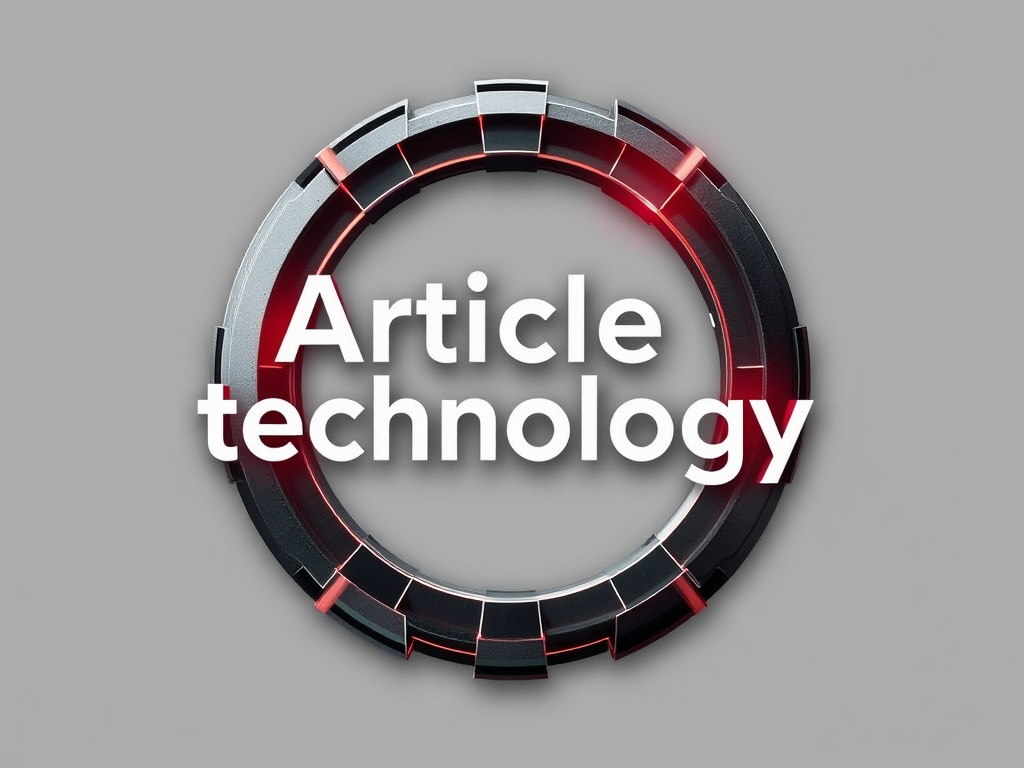Overview of UK Computing Hardware Innovations
The United Kingdom has become a hub of pioneering computing hardware innovations, significantly impacting sectors such as healthcare. Recent advancements showcase the country’s commitment to pushing technological boundaries, evidenced by the development of cutting-edge medical devices and tools. Institutions like Imperial College London and businesses such as ARM Holdings spearhead these innovations. They focus on hardware solutions tailored to specific healthcare needs, enhancing patient care and operational efficiency.
Key areas of focus include technologies that enhance diagnostic capabilities and improve the accuracy of treatments. For instance, the integration of AI algorithms into diagnostic hardware represents a leap forward in precision medicine. Additionally, the UK hosts numerous research centres dedicated to exploring novel solutions that combine hardware prowess with healthcare pragmatism, contributing to the global healthcare technology landscape.
Also read : Exploring uk innovations: shaping the future of computing hardware
In summary, the UK’s computing hardware advancements are not only revolutionising healthcare technology applications but also setting a benchmark for future innovations globally.
Applications of Computing Hardware in Healthcare
In the realm of healthcare technology applications, the integration of computing hardware has revolutionised medical devices, significantly impacting patient outcomes. One real-world example is the use of advanced sensor technology embedded in wearable devices. These wearables track vital signs continuously and provide real-time data, facilitating timely medical intervention. Such innovations exemplify the transformative power of hardware applications in healthcare, delivering precise diagnostics and enhancing patient care.
This might interest you : How uk computing hardware drives superior data center performance
Case studies illustrate success stories, such as the employment of digital health platforms that combine hardware and software to monitor chronic conditions remotely. Patients benefit from tailored treatment plans informed by comprehensive data analysis. The synergy of software and hardware in healthcare solutions enables seamless data integration from multiple sources, offering a holistic view of patient health.
Moreover, the integration of AI algorithms with medical hardware devices allows for improved diagnostics and predictive analytics. AI-driven imaging tools enhance the early detection of diseases, boosting the efficacy and precision of treatments. By leveraging computing hardware, healthcare providers can optimise resource utilisation and improve overall service delivery. These developments highlight the pivotal role of computing hardware in advancing healthcare technology applications, setting a foundation for future innovations.
Benefits of UK Hardware Innovations for Healthcare
The benefits of technology in healthcare are profound and multifaceted, enhancing both diagnostics and treatment efficacy. UK computing hardware innovations have led to significant improvements in the accuracy and efficiency of diagnostic processes. For example, the integration of precision instruments allows for more reliable interpretations of medical imagery, directly influencing patient care outcomes.
Furthermore, innovations in healthcare technology have substantially improved patient monitoring and data management practices. By leveraging advanced computing hardware, healthcare providers can continuously monitor patient vitals with high precision. This allows for the early detection of potential health issues and timely interventions, which are crucial for effective treatment.
The cost-effectiveness and resource optimisation provided by these technological advancements cannot be overstated. By utilising cutting-edge computing hardware, hospitals and clinics not only improve their service delivery but also enhance their operational efficiency. This is achieved through streamlined processes, reduction in manual errors, and better utilisation of healthcare professionals’ expertise.
Ultimately, these technological innovations contribute to the holistic improvement of healthcare delivery, driving advancements that positively affect patient outcomes and healthcare economics.
Challenges and Considerations
While healthcare technology continues to transform the industry, it is not without its challenges. A primary concern is data security and privacy, which have heightened as new technologies are integrated. Healthcare providers must ensure robust systems to protect sensitive patient data. Failure to address these concerns can lead to breaches, undermining trust in these technologies.
Regulatory hurdles also pose significant challenges. Compliance with healthcare regulations, such as patient data protection laws, can delay the deployment of new innovations. Understanding and navigating these regulations are paramount to avoid costly setbacks. Additionally, these regulatory processes can be arduous and resource-intensive.
Another major consideration is the training and adaptation required for healthcare staff. As novel technologies are introduced, staff need to acquire new skills to effectively operate advanced hardware solutions. Continuous training programs are essential to ensure that healthcare personnel can make optimal use of technological advancements.
Addressing these challenges will be critical for the successful integration of computing hardware innovations into the healthcare space, ensuring that their potential benefits can be fully realised.
Future Trends in Healthcare Technology
The future of healthcare technology promises to be an exciting realm, driven by emerging trends in computing hardware. Predictions suggest that the next wave of innovations will heavily feature artificial intelligence (AI) and machine learning (ML), heralding a new era in how healthcare is delivered and experienced. These technologies are expected to refine precision medicine further by enabling more accurate predictions and tailored treatments, paving the way for a truly personalized healthcare experience.
AI’s ability to process and analyse vast datasets could transform diagnostic tools, making them faster and even more reliable. Similarly, ML algorithms can continuously learn from new data, improving their predictive accuracy over time. The integration of these advancements into healthcare hardware will not only enhance diagnostic and treatment options but also streamline healthcare operations by automating routine tasks, thereby freeing medical professionals to focus on more complex issues.
Globally, the impact of such advancements could be pivotal. As countries strive to improve their healthcare systems, the UK’s progress in this field sets a standard. The potential exists for considerable knowledge transfer between nations, fostering a competitive yet collaborative global healthcare landscape. By following the UK’s lead in adopting and integrating cutting-edge technologies, other nations can amplify their healthcare capabilities, ultimately improving healthcare outcomes worldwide.
Expert Opinions and Insights
In the rapidly evolving field of healthcare technology, expert opinions offer valuable insights into the impact of UK computing hardware innovations. These innovations have substantially reshaped healthcare delivery, conferring numerous benefits of technology in healthcare. Industry leaders emphasize the crucial role that these advancements play in enhancing patient care through improved precision and efficiency in diagnostics. For instance, real-world applications such as AI-driven imaging tools have significantly improved diagnostic accuracy.
Interviews with key figures highlight that these emerging trends in computing hardware have not only improved healthcare outcomes but have also set a global benchmark. Academic perspectives underscore the importance of ongoing research, reflecting that the synergy between academia and industry drives continuous innovation. Experts advocate for sustained collaborative efforts to develop cutting-edge solutions, stressing this as pivotal to maintaining a competitive edge.
Furthermore, industry experts anticipate that the fusion of artificial intelligence and machine learning with hardware technology will result in transformative changes. These technologies are poised to refine patient diagnosis and treatment processes, ensuring a more personalized and efficient healthcare experience. This viewpoint aligns with the current movement towards automating routine tasks, thereby liberating healthcare professionals to devote their attention to more intricate patient care needs.
Conclusions and Future Directions
In navigating the future directions in healthcare technology, sustained innovation and collaboration remain pivotal. The synergy between computing and healthcare continues to evolve, with UK computing hardware innovations charting new paths in technology advancements in healthcare. As we’ve explored, the revolution in precision and efficiency offered by these technologies is undeniable.
As we look ahead, several opportunities present themselves for further advancement. Continued research and investment are paramount to push the boundaries of what’s currently possible. Developing and refining computing hardware will ensure the UK retains its position at the forefront of the global healthcare landscape.
Institutions and private entities must prioritize collaborative efforts to leverage existing expertise and drive additional breakthroughs. This collaboration will foster an environment ripe for innovation, ensuring that future directions in healthcare technology not only enhance patient care but also set new benchmarks for industry practices.
The relationship between computing and healthcare is one that promises endless possibilities. By embracing these future trajectories, we will continue to witness a transformation in how healthcare is delivered, ultimately benefitting patient outcomes worldwide.

